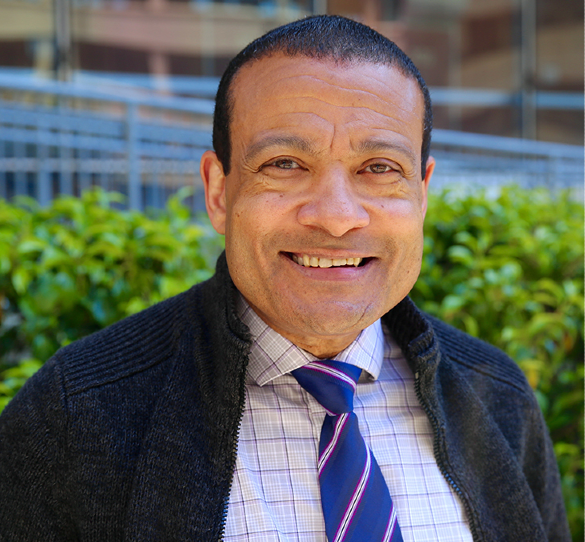Dr. Leon “Lee” Jones has been appointed as the dean for medical education at the Georgetown University School of Medicine following a yearlong, nationwide search.
The position has been vacant since June 2019, when longtime Dean Stephen Mitchell stepped down after a 20-year term. While the School of Medicine searched for a replacement, applications to medical schools across the United States hit an all-time high because of a surge in interest in medical education stemming from the COVID-19 pandemic.

Focusing on student wellness, diversity and inclusion is crucial for the medical school’s growth, according to Jones, whose role officially takes effect Aug. 1.
“I’m looking forward to having my feet on the ground; getting to know our community well; and reaffirming our guiding principles and desired outcomes,” Jones wrote in an email to The Hoya.
Jones, who currently serves as the associate dean for students and health sciences clinical professor of psychiatry at the University of California, San Francisco School of Medicine, has worked in medical education for more than 25 years.
In addition to his background in medicine and education, Jones has also been involved in a number of initiatives aimed at promoting diversity within medical education. He helped create a series of informative videos for the Association of American Medical Colleges that focused on improving care for LGBTQ populations, and he has worked as a national educator with the Building the Next Generation of Academic Physicians diversity initiative, which provides resources about careers in academic medicine to medical students and residents, and the Deferred Action for Childhood Arrivals, an immigration policy that protects people who were brought to the United States as children from deportation.
Given his work advocating for inclusion and diversity, the university is looking forward to welcoming Jones into the Georgetown community, according to President John J. DeGioia (CAS ’79 , GRD ’95).
“Dr. Jones is a national leader in efforts to advance equity and inclusion at medical schools in the United States,” DeGioia wrote in a universitywide email. “He has led extensive work in developing evidence-based policy, initiatives, and educational programs with a focus on medical school admissions, diversity, student support and learning environment, and student financial assistance.”
Jones hopes to further educate Georgetown students about racism and discrimination in the United States health care system, he wrote.
“There are twin pandemics,” Jones wrote. “These are intertwined, with the viral pandemic further highlighting not only our need to address public health in depth and proactively, but also the health care and health inequities in our country.”
During the last year, the COVID-19 pandemic has exposed deep inequities in the health care system, including in Washington, D.C. A June 2020 report published by the Georgetown School of Nursing & Health Studies found that Black residents accounted for over 80% of the COVID-19 deaths in the District.
Jones’s extensive experience as an educator and his work advocating for diversity make him well positioned to lead Georgetown’s School of Medicine as the COVID-19 pandemic continues, according to Edward B. Healton, the executive vice president for health sciences at Georgetown University Medical Center and executive dean of the School of Medicine.
“Dr. Jones is an inspiring and transformational leader who is uniquely positioned to lead our medical school into this next decade,” Healton wrote in the university press release. “He is highly regarded nationally as a champion for advancing medical education, for medical students and the issues that most affect them, and for creating a culture of equity and diversity.”
The past year’s pandemic challenges have forced the medical education field to adapt, but the changes have left the field in a position to make positive progress, according to Jones.
“The time is right to use momentum, innovation, and the dedication and passion of our medical community to improve what we do, how we do it, and who we welcome into our community going forward,” Jones wrote.




















